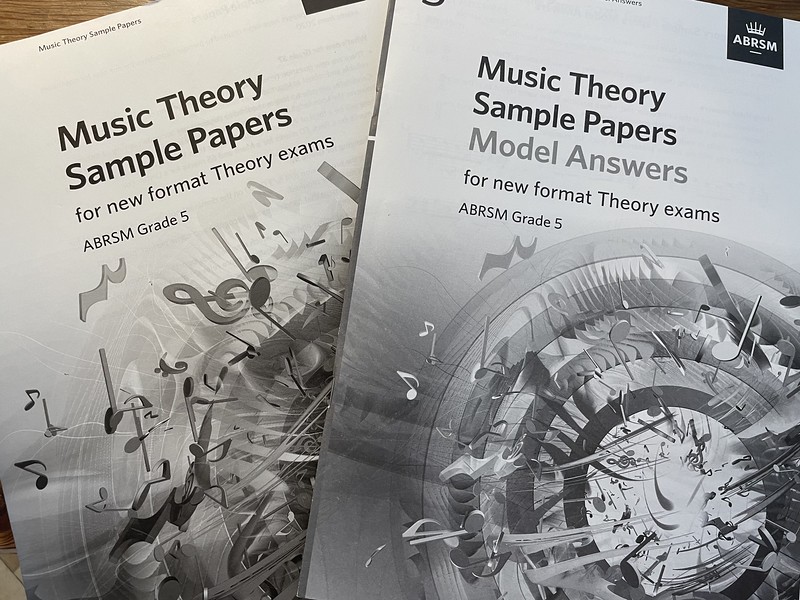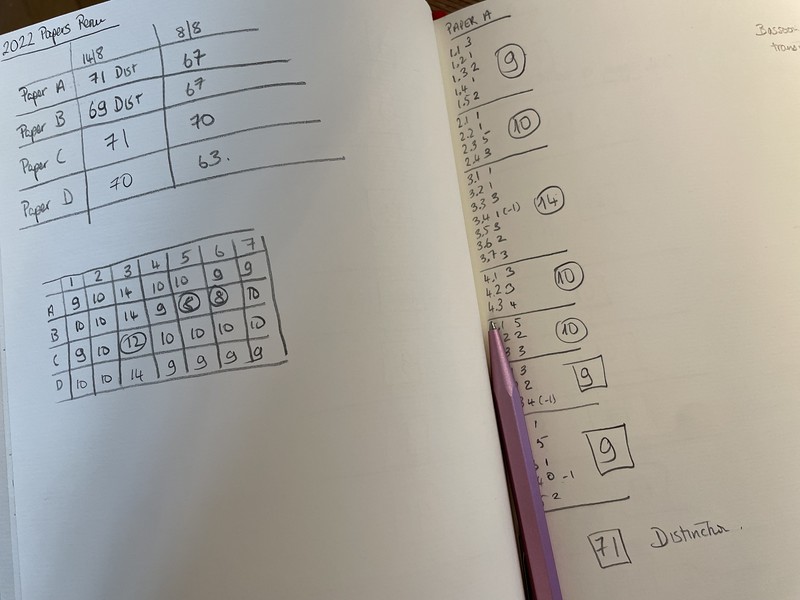Some time ago I looked into the lists for music exams with a view to eventually finishing off the grades. I had done a few few grades when I was a teenager (you can find the books here). I wasn’t in a hurry to go back to the RIAM (I’m never going to get over the Bartok, it seems) but I eventually after some research wound up on the ABRSM website. A couple of things cropped up around this: they had performance grades now (4 pieces instead of 3 and no sight/aural testing, plus they could be recorded and uploaded rather than scheduled).
Additionally, the grade 6 list had one piece that I already owned with a view to learning. However, there is some gamification involved and before you can do Grade 6, you need to do some grade 5 or other. ABRSM focused heavily on Grade 5 Theory although they acknowledged any other Grade 5 (including RIAM as it happens), I have very vague recollections of doing Grade 5 with the RIAM and it being problematic. But I could be discussing Grade 4, I don’t know.
Anyway, I had a look through the ABRSM online exam papers, did all of them and realised I was just shy of Grade 4 so some work was going to be required for Grade 5. Some study. Here’s what I did.
I bought all the material. Right now, that means a bunch of music theory papers, a book and some workbooks. In order of usefulness:
- First Steps in Music Theory
- Sample Exam papers
- A long way back: the workbooks.
If I am honest, the workbooks are not so useful if you are an adult. But the First Steps in Music Theory by Eric Taylor is absolutely essential.
This is a really useful book.
One of the most useful things you can do then is to work through exam papers.
The papers are organised in 7 sections:
- Rhythm
- Pitch
- Keys and Scales
- Intervals
- Chords
- Terms
- Music in Context
Each section has 10 points except keys and scales which has 15.
I worked through a lot of exam papers: there are several books of them, with a new one issued most of the recent years, there is a test digital exam on the ABRSM’s website and they also have one sample to download and print.
What I did at the time, was work through a paper, and then note the scores I had to identify which parts were my weaker parts, what I had to learn/work on with more effort.
You can see on one of the tables on the left hand side where I was dropping points on each paper. In theory, I just had to pass the exam so I can move on. But this is an ego thing for me – I didn’t just want to pass, I wanted to get a Distinction. So yeah, I needed to ensure I did not drop any more than 10 points. I did, several times, while going through the papers.
For me, the weaker points were generally, somehow, keys and scales, and intervals. I don’t know why because by ear, they work automatically for me.
In the end, I did the exam in August, and I got the distinction I want. If I was to give advice for anyone else doing this, buy the sample papers + model answers, and buy the First Steps in Music Theory book. And then, work through them. When you’re ready, sign up to to the exam and do it sooner rather than later.



